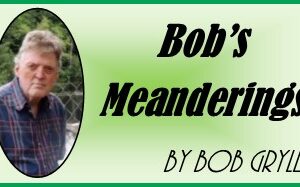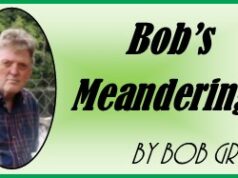I’d been mulling over in my mind the interesting discussion I had with a friend only yesterday about placebos when I came across an article with more meat on its bones than I could have predicted.
It started out with an intriguing question: Have you ever felt yourself relaxing say when a friend was describing a massage? For those of you who said “yes,” it means your brain is using its power to create a “placebo effect.”
Since the 1800s, the word ‘placebo’ has been used to refer to a fake treatment, meaning it doesn’t contain any active or physical substance. Placebos are often referred to as “sugar pills.” That tied right into the talk my friend and I had.
But there was much more to learn. In real life, placebos have a powerful healing effect on the body and ;mind. They play a crucial role in medical studies in which some participants are given a treatment of active ingredients of the medicine, and others are given a placebo. These studies help tell researchers which medicines are effective. Surprisingly, in some areas of medicine, placebos themselves provide patients with clinical improvement.Psychologists are interested in how psychological factors affect physical conditions and beliefs about mental health that help patients heal. The placebo effect reveals the power of our minds and how our bodies can benefit.
These effects as the positive outcomes that cannot be scientifically explained by the physical effects of the treatment. The placebo effect is caused by positive expectations and the provider-patient relationship in the receiving of medical care.
Depression, pain, fatigue, allergies, irritable bowel syndrome and even osteoarthritis of the knee are just a few of the conditions that respond positively to placebos.
However, there is stigma and debate about using placebos; they are rarely used on purpose. But based on new understanding, there is increasing recommendations to do so. Studies have shown that the placebo effect is so strong that many drugs don’t provide more relief than the placebo treatments.
But according to psychology and placebo experts, a large part in alleviating depression is the placebo effect – in other words believing that you will overcome depression by visualizing your negativity is diminishing.
Enrichment from the placebo boils down to the power of the mind and the skill at harnessing it. If a patient gets a tension headache and their trusted doctor prescribes a medicine they feel confident with, the relief they expect is likely to decrease their stress. And since stress is a trigger for tension headaches, the magic of the placebo response is not so mysterious anymore.
I have osteoarthritis in my knees, bothersome during the night. I believe that a number people use mind power to combat pain. I will practice it also but, especially during my nightly walks where it is more effective to concentrate on one difficulty at a time.
Part of the beauty of placebos is that they activate existing systems of healing within the mind and body. A field called Mind Body Medicine was developed from observation of monks and so-called other experts mastering control over automatic processes of the body.
Many diseases are made worse by the automatic changes that occur in the body under stress. If a placebo interaction reduces stress, it can reduce certain symptoms in a scientifically explainable way.
Placebos also work by creating expectations and accustomed responses with Pavlovian-type conditioning. Harvard Medical School successfully used the same conditioning principle to help patients use less opioid medication for pain following spine surgery. Emerging research suggests that even when people know they are receiving a placebo, it still has effects on the brain and reported levels of improvement.
Placebos offer multiple benefits. They have no side effects, are cheap, and not addictive. They provide hope when a specific chemically active treatment is not available. They mobilize a person’s own ability to heal. By defining a placebo as the act of setting positive expectations and providing hope through psychosocial interactions, it becomes clear that placebos can enhance traditional medical treatments.
With the medical field’s growing acceptance and promotion of placebo effects, we can envision a time when patients and clinicians take pride in their skill at utilizing the placebo response.





![Kenopic/Smith Auction [Paid Ad]](https://whitewaternews.ca/wp-content/uploads/2018/10/advertising-100x75.jpeg)

